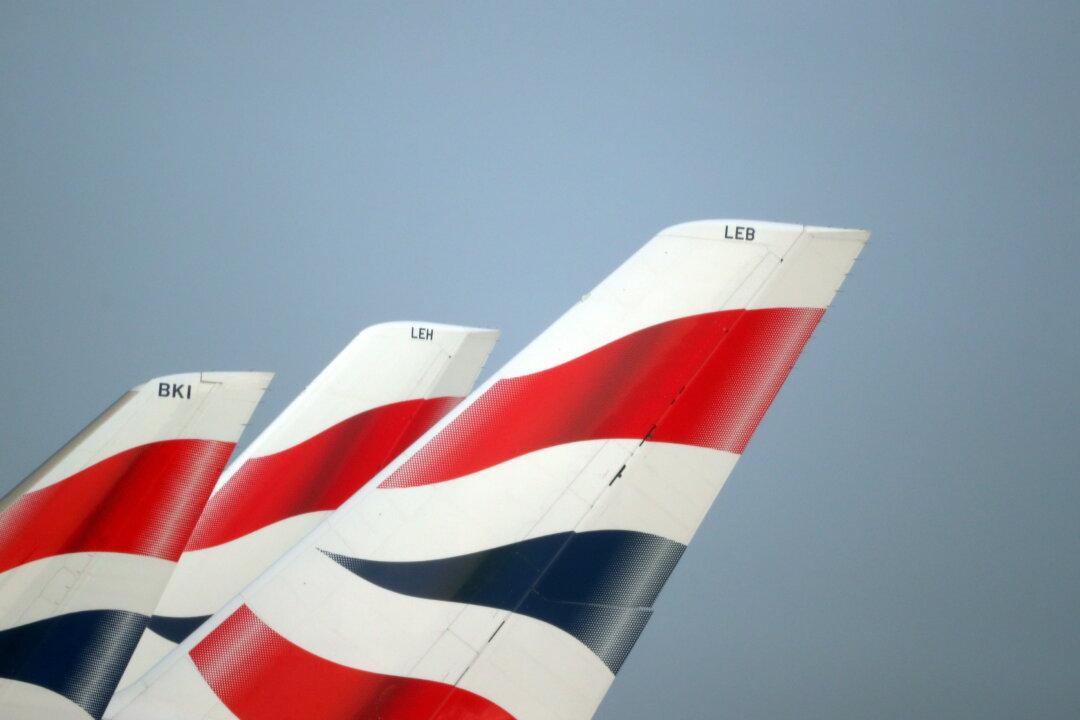LONDON—British Airways-owner IAG cut back plans to ramp up short-haul flights to avoid disruption at Heathrow airport this summer, sending its shares skidding 8 percent on Friday after admitting it doesn’t have enough staff to cope.
The company, which also owns Iberia, Vueling and Aer Lingus, has struggled with crew absences caused by the Omicron-variant of COVID-19 and a shortage of ground staff. Compounded by IT problems, flights had to be cancelled during the first quarter.





